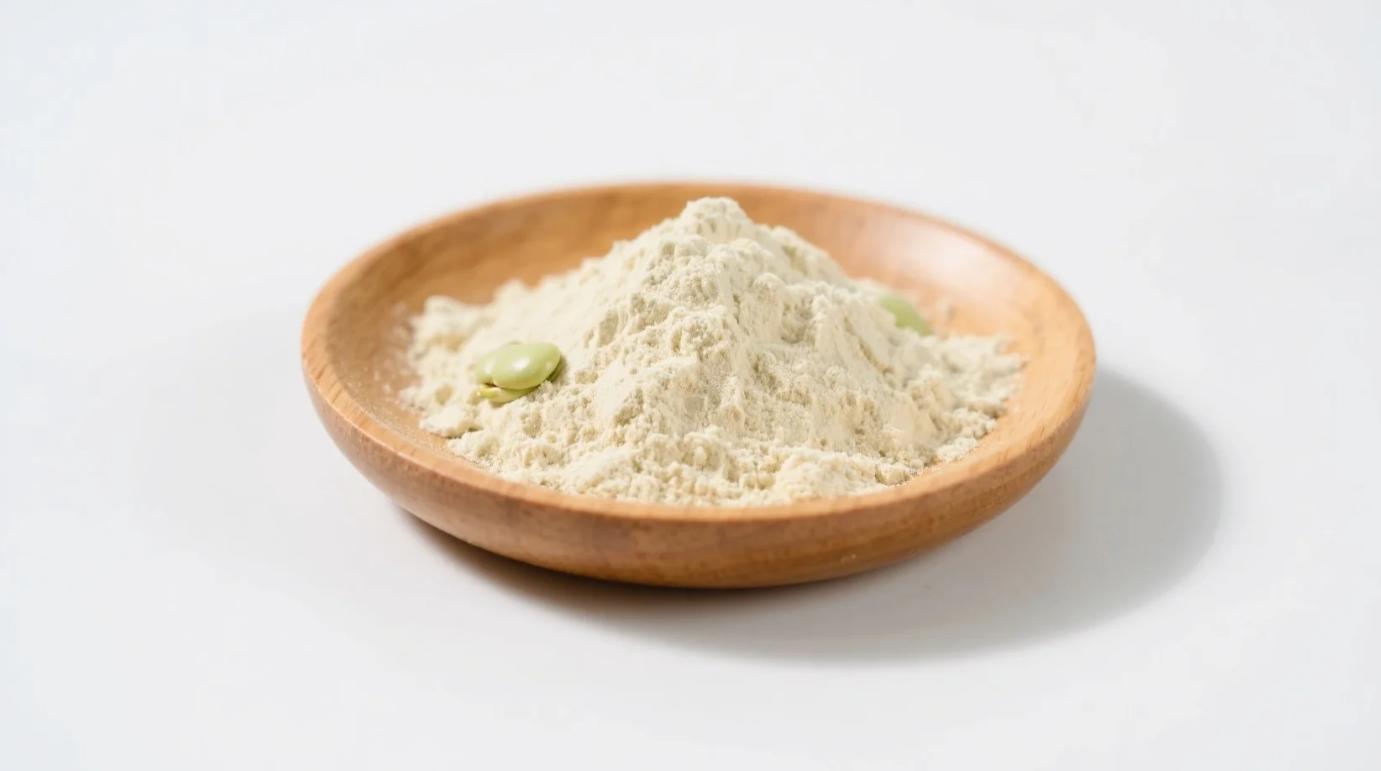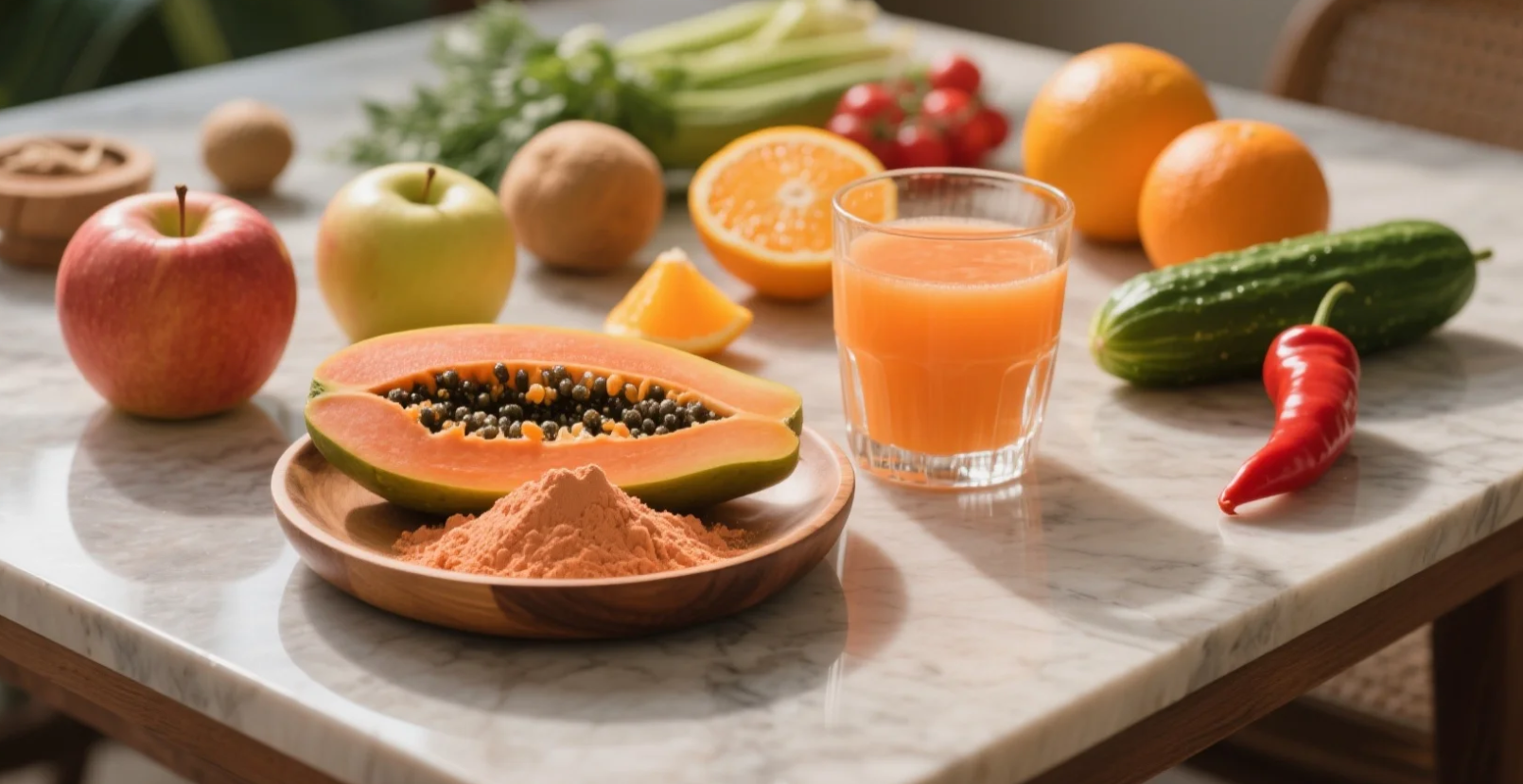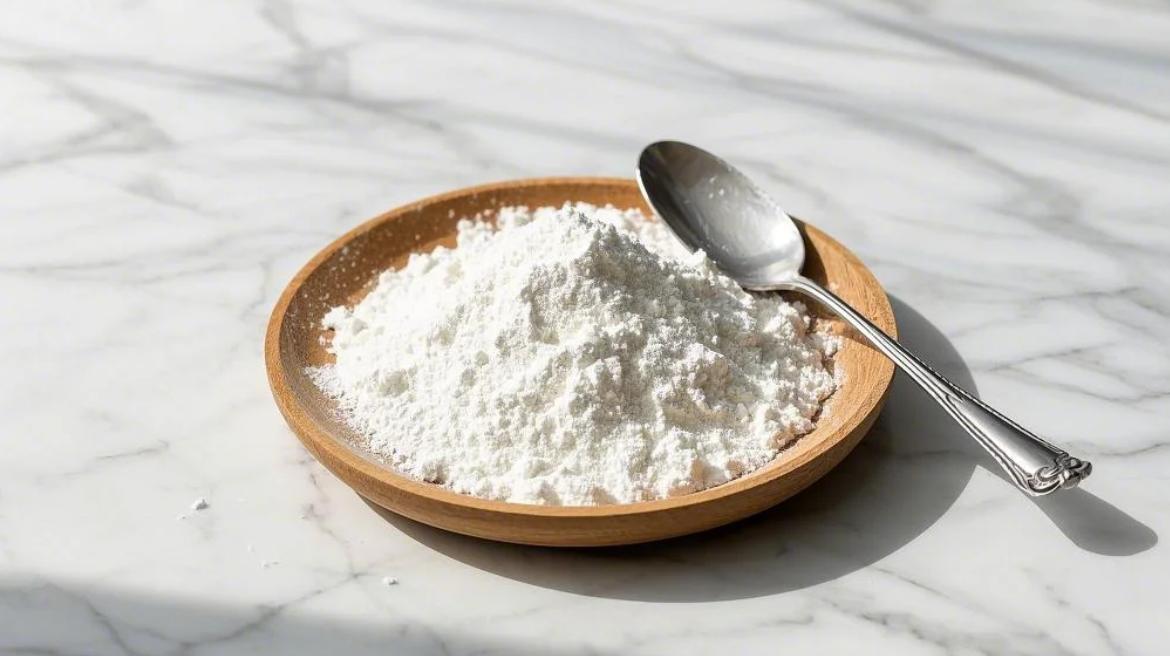Table of Contents
Fava bean protein is rising as a star in plant-based nutrition, offering a sustainable, gluten-free alternative to soy and pea protein. But while organic fava bean protein powder boasts impressive benefits, it’s not without potential downsides. Let’s explore its side effects, who should avoid it, and how to use it safely.
Fava Bean Protein Benefits at a Glance
- Complete Protein: Contains all 9 essential amino acids, rich in lysine for muscle repair.
- Iron Powerhouse: 5mg iron per serving (28% DV)—ideal for vegans.
- Eco-Friendly: Fixes nitrogen in soil, reducing fertilizer needs.
- Low Allergen Risk: Gluten-free, soy-free, and non-GMO.
5 Potential Side Effects of Fava Bean Protein
1. Digestive Discomfort
- Why: High fiber (10g/serving) and oligosaccharides may cause bloating or gas.
- Fix: Start with ½ scoop daily, drink plenty of water, and pair with digestive enzymes.
2. Allergic Reactions
- Risk: Rare but possible, especially in those allergic to legumes (peanuts, lentils).
- Symptoms: Itching, swelling, hives, or anaphylaxis.
- Test: Rub a small amount on your wrist before consuming.
3. G6PD Deficiency (Favism)
- Danger: In individuals with G6PD deficiency (common in Mediterranean/Middle Eastern populations), fava beans can trigger hemolytic anemia.
- Symptoms: Fatigue, dark urine, jaundice.
- Action: Avoid entirely if G6PD-deficient.
4. Tyramine Interaction
- Risk: Fava beans contain tyramine, which may interact with MAO inhibitors (antidepressants like phenelzine).
- Effect: Dangerous blood pressure spikes.
- Solution: Consult a doctor if on psychiatric meds.
5. Heavy Metal Exposure
- Concern: Non-organic fava beans may absorb cadmium from contaminated soils.
- Prevention: Choose certified organic fava bean protein powder, third-party tested for heavy metals.
Who Should Avoid Fava Bean Protein?
- G6PD Deficiency Patients: Strictly contraindicated.
- MAO Inhibitor Users: Due to tyramine content.
- Kidney Disease Sufferers: High potassium (600mg/serving) may strain compromised kidneys.
- Low-FODMAP Diets: Oligosaccharides can trigger IBS symptoms.
Organic vs. Conventional: Why Source Matters
| Factor | Organic Fava Bean Protein | Conventional |
|---|---|---|
| Pesticides | Zero glyphosate or synthetic sprays | Risk of chemical residues |
| Heavy Metals | Rigorously tested | Higher cadmium/lead risk |
| Sustainability | Regenerative farming practices | Monocropping depletes soil |
| Nutrition | Higher polyphenol retention | Nutrient loss from harsh processing |
How to Use Safely
- Start Slow: Begin with 5–10g daily to assess tolerance.
- Pair with Vitamin C: Enhances iron absorption (e.g., blend with citrus fruits).
- Cook Thoroughly: Lightly heat powders to reduce lectins (anti-nutrients).
- Monitor Reactions: Track energy, digestion, and skin changes.
FAQs
Q: Can fava bean protein cause weight gain?
A: Unlikely—it’s low-cal (110/serving) and high in satiating fiber.
Q: Safe during pregnancy?
A: Yes, unless G6PD-deficient. Its folate (15% DV) supports fetal development.
Q: Taste?
A: Earthy/nutty flavor. Mask with cocoa, cinnamon, or vanilla in smoothies.
Q: Shelf life?
A: 2 years in airtight containers (store in cool, dry places).
The Verdict
While organic fava bean protein powder is a nutrient-dense, eco-friendly option, it’s not universally safe. By understanding its side effects and opting for certified organic, low-contaminant products, most people can enjoy its benefits without worry—except those with G6PD deficiency or specific medication interactions.
Ready to Try Fava Bean Protein?
Choose certified organic fava bean protein powder—where purity meets plant-powered nutrition. Fuel your body wisely, and thrive with clarity.
Nourish boldly, but always mindfully.
Recommended Product
Organic Fava Bean Protein Powder
Organic fava bean protein powder offers 80-90% complete plant protein with excellent amino acid profile…


